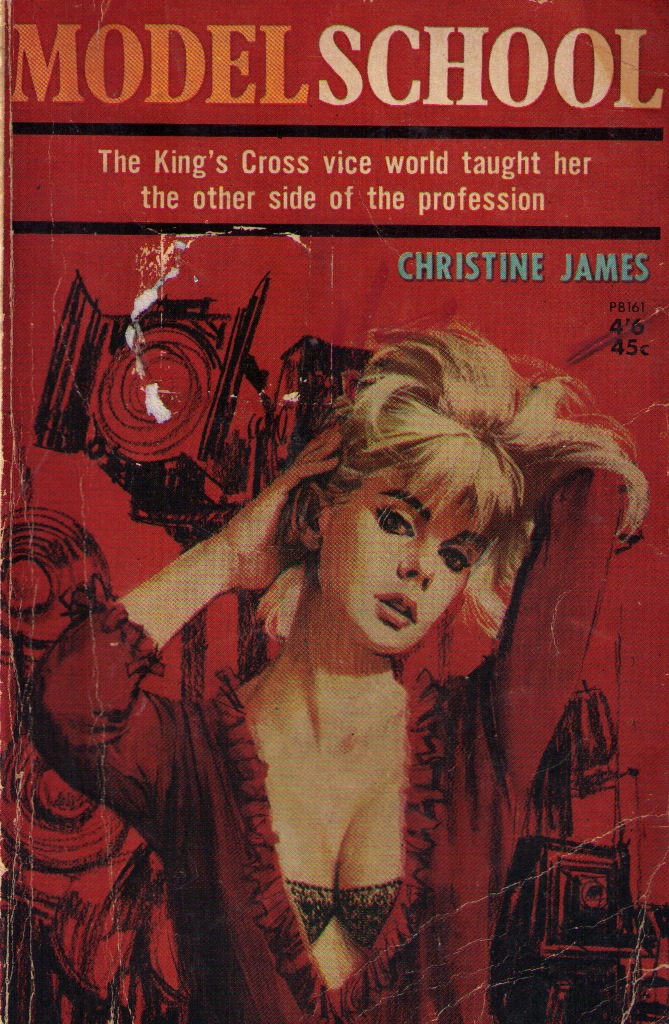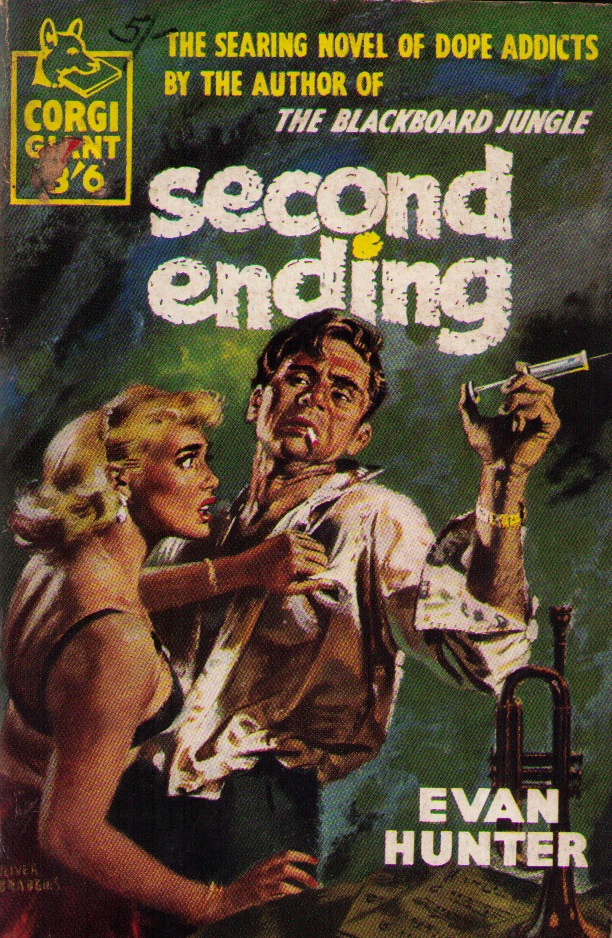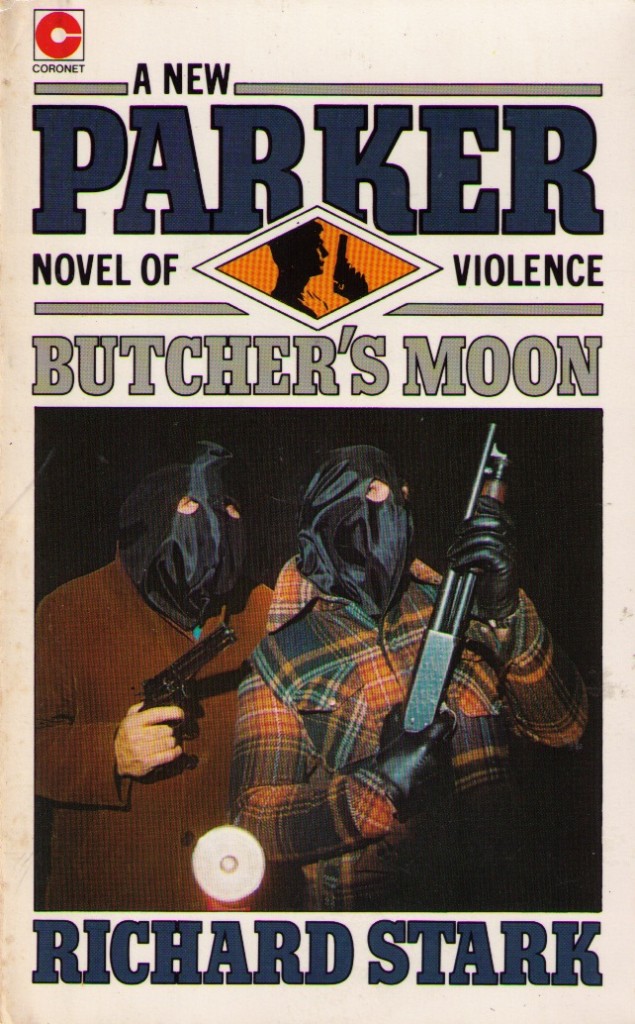Search
-
Recent Posts
- Dishing up Pulp Curry in a new way: why I am starting a Substack newsletter
- Book reviews: Deadly dames, midcentury Brit pulp and 1970s science fiction
- Mackenna’s Gold (1969): Gold, Ghosts and Frontier Violence
- Orphan Road book launch
- Orphan Road now available
- Pre-orders open for my new novel, Orphan Road
- Cover reveal: Orphan Road, my follow up to Gunshine State
- Breakfast in the Ruins podcast: New English Library Bikermania
- Why 1973 was the year Sidney Lumet took on police corruption
- Men’s Adventure Quarterly: Gang Girls issue
Categories
- 1960s American crime films
- 1970s American crime films
- 1980s American crime films
- 1990s American crime films
- Adrian McKinty
- Albert Dekker
- Andre De Toth
- Angela Savage
- Angie Dickinson
- Anthony Zerbe
- Asian noir
- Australian crime fiction
- Australian crime film
- Australian noir
- Australian popular culture
- Australian pulp fiction
- Australian television history
- Ava Gardner
- Beat culture
- Belmont Tower Books
- Ben Wheatley
- Billie Whitelaw
- Black pulp fiction
- Blaxsploitation
- Book cover design
- Book Reviews
- British crime cinema
- British pulp fiction
- Bryan Brown
- Burt Lancaster
- Carter Brown
- Charles Durning
- Charles Willeford
- Chester Himes
- Christopher G Moore
- Christopher Lee
- Cinema culture
- Claude Atkins
- Coronet Books
- Crawford Productions
- Crime Factory
- Crime Factory Publications
- Crime fiction
- Crime fiction and film from Africa
- Crime fiction and film from Cambodia
- Crime fiction and film from China
- Crime fiction and film from India
- Crime fiction and film from Indonesia
- Crime fiction and film from Japan
- Crime fiction and film from Laos
- Crime fiction and film from Latin and Central America
- Crime fiction and film from Malaysia
- Crime fiction and film from New Zealand
- Crime fiction and film from Scandinavia
- Crime fiction and film from Singapore
- Crime fiction and film from South Korea
- Crime fiction and film from Thailand
- Crime fiction and film from the Philippines
- Crime Fiction and film set in Vietnam
- Crime film
- Dangerous Visions and New Worlds Radical Science Fiction 1950 to 1985
- David Goodis
- David Peace
- David Whish-Wilson
- Derek Raymond
- Diana Dors
- Dirk Bogarde
- Don Siegel
- Don Winslow
- Donald Westlake aka Richard Stark
- Dystopian cinema
- Ernest Borgnine
- Eurocrime
- Fawcett Gold Medal Books
- Femme fatale
- Fernando Di Leo
- Filipino genre films
- Film Noir
- Forgotten Melbourne
- French cinema
- French crime fiction
- Garry Disher
- Gene Hackman
- George V Higgins
- Georges Simenon
- Ghost Money
- Giallo cinema
- Gil Brewer
- Girl Gangs, Biker Boys and Real Cool Cats: Pulp Fiction & Youth Culture, 1950-1980
- Gloria Grahame
- Gold Star Publications
- Gregory Peck
- Gunshine State
- Heist films
- Horror
- Horwitz Publications
- Humphrey Bogart
- Ian Fleming
- Interviews
- Ira Levin
- James Caan
- James Crumley
- James Ellroy
- James Hadley Chase
- James Woods
- Jim Brown
- Jim Thompson
- Joel Edgerton
- John Frankenheimer
- Joseph Losey
- Karen Black
- Kerry Greenwood
- Kinji Fukasaku
- Larry Kent
- Laura Elizabeth Woolett
- Lee Marvin
- Leigh Redhead
- Lindy Cameron
- M Emmet Walsh
- Mad Max
- Mafia
- Malla Nunn
- Martin Limon
- Megan Abbott
- Melbourne International Film Festival
- Melbourne Writers Festival
- Men's Adventure Magazines
- Michael Caine
- Michael Fassbender
- Mickey Spillane
- Monarch Books
- Ned Kelly Awards
- Neo Noir
- New English Library
- Newton Thornburg
- Noir Con
- Noir fiction
- Non-crime reviews
- Oren Moverman
- Orphan Road
- Ozsploitation
- Pan Books
- Parker
- Paul Newman
- Peter Boyle
- Peter Corris
- Peter Strickland
- Peter Yates
- Poliziotteschi
- Pulp fiction
- Pulp fiction in the 70s and 80s
- Pulp fiction set in Asia
- Pulp Friday
- Pulp paperback cover art
- Qui Xiaolong
- Raymond Chandler
- Richard Burton
- Richard Conte
- Robert Aldrich
- Robert Mitchum
- Robert Ryan
- Robert Stone
- Rock Hudson
- Roger Smith
- Rollerball
- Rosaleen Norton
- Roy Scheider
- Rural noir
- Sam Levene
- Sam Peckinpah
- Samuel Fuller
- Science fiction and fantasy
- Scripts Publications
- Sidney Lumet
- Sidney Poitier
- Simon Harvester
- Snowtown
- Snubnose Press
- Spies
- Stanley Baker
- Sterling Hayden
- Steve McQueen
- Sticking it the the Man Revolution and Counter Culture in Pulp and Popular Fiction 1950 1980
- Stuart Rosenberg
- Tandem Books
- Tart noir
- Tartan Noir
- Ted Lewis
- Toni Johnson Woods
- True crime
- Vicki Hendricks
- Victor Mature
- Vintage mug shots
- Vintage pulp paperback covers
- Wallace Stroby
- War film
- Westerns
- William Friedkin
- Woody Strode
- Yakuza films
- Yaphet Kotto
Nothing but noir
Recommended reading
The lurid world of pulp
- 20th century Danny Boy
- American Pulps
- Bear Alley
- Bloody, Spicy, Books
- Comics Down Under
- Everything second hand
- Existential Ennui
- Greenleaf Classic Books
- Irv O. Neil's Erotica is My Trade
- Killer Covers
- Lost Classics of Teen Lit 1939-1989
- Luminist Archives
- Men's Pulp Mags
- Mporcius Fiction Log
- Murder, Mayhem and Long Dogs
- Neglected Books
- Nocturnal Revelries
- Paperback Warrior
- Paperbacks of the Gods
- Pop Sensation
- Pulp artists
- Pulp Covers
- Pulp Crazy
- Pulp Flakes
- Pulp International
- Pulp Magazines Project
- Pulp Serenade
- Realms of the Night
- Romance Fiction Has a History
- Rough Edges
- Sin Street Sleaze
- Spy Guys and Gals
- The department of Afro American Research Arts & Culture
- The Dusty Bookcase
- The Haunted World of Richard Sala
- The Moon Lens
- The Nick Carter & Carter Brown Blog
- The Pulp & Paperback Fiction Reader
- Too Much Horror Fiction
- True Pulp Fiction
- Vault of Horror
- Vintage Nurse Romance Novels
- Vintage Romance Novels
- Welcome to the Pan Paperback
- Yellow and Creased
Support This Site
If you like what I do please support me on Ko-fi
Category Archives: Pulp Friday
Pulp Friday: interview with Iain Mcintyre, author, Sticking it to the Man!
Today’s Pulp Friday is a fascinating interview with Melbourne-based social historian Iain McIntyre, author of a new book, Sticking it to the Man! Pop, Protest and Black Fiction of the Counterculture, 1964-75.
Sticking it to the Man! is a roller coaster ride through the lava lit streets of the counter-cultural pulp fiction of the late sixties and early seventies, a time when hippies, bikers, swingers and revolutionaries replaced cops and private detectives as pulp’s stable characters.
The book contains 130 reviews of pulps from the period covering all the major sub-themes: drug use, bikers, sleaze, blaxsploitation, hippies and dystopian science fiction. It also includes the covers in all their dog eared, price marked glory. It’s through books like this that the hidden history of pulp fiction is gradually pieced together. Sticking it to the Man! is a must read for every serious pulp fiction afficiando.
You can buy Sticking it to the Man! here. Copies will also be on sale at the launch of Crime Factory’s Hard Labour anthology, this coming Monday, October 8. Iain will also be talking about his book at the launch.
What is it about pulp fiction between 1964 and 1975, the period covered in your book that you find so interesting?
I’ve long had an interest in troublemakers, militants and odd-balls, and this was a period in which those normally relegated to the margins were able to have a major impact on culture and society.… Read more
Posted in Australian pulp fiction, Chester Himes, Gold Star Publications, New English Library, Ozsploitation, Pulp fiction, Pulp Friday, Pulp paperback cover art, Robert Stone, Scripts Publications, Vintage pulp paperback covers
Tagged 1964-75, Blaxsploitation pulp, Carl Ruhen, Chester Himes, Counter cultural pulp fiction, Dave Wallis, Dog Soldiers, Dykes on Bikes, Gil Scot-Heron, Give Me Money, Gold Star Publications, Harlan Ellison, Horwitz Publications, Iain McIntyre, Joe Haldeman, John Brunner, John Love, Michael Moorcock, Only Lovers Left Alive, Operation Hang ten, Patrick Morgan, Protest and Black Fiction of the Counterculture, Robert Stone, Scripts Publications, Sex A-Go-Go, Sticking it to the Man: Pop, The Crucifiers, The Final Programme, The Forever War, Ursula K Le Guin, William Bloom
Pulp Friday: Model School
“The King’s Cross vice world taught her the other side of the profession.”
Today’s Pulp Friday offering is a wonderful example of local pulp fiction from the early sixties, Model School by Christine James, released by Horwitz Publications in 1965.
The early sixties were a turning point for the Australia’s pulp paperback industry, when publishers stopped relying purely on reprints of overseas material and stories set offshore, and started releasing locally set stories by Australian writers.
The setting for much of this work was Sydney’s Kings Cross, which during the sixties, seventies and eighties was Australia best-known center of drug use and prostitution.
Prostitutes, beatniks, con men, drug dealers, bent cops, organized crime lords, innocent tourists and American servicemen on leave all rubbed shoulders in ‘the Cross’ as it is referred to locally. To this, local pulp authors added Chinese Triad gangs enslaving white women, witches and warlocks and a host of other less believable characters.
Like so many of the Australian pulp I feature on my site, I have not been able to find anything out about the author, Christine James, if, indeed this was her or his real name.
Model School is a fairly typical example of the Kings Cross pulp of the early to mid-sixties.
“The phoney model racket.… Read more
Pulp Friday: Narcotic pulp
Dope, smack, heroin, cocaine, the evils of narcotics have always been a central pre-occupation of pulp fiction, as can be seen by the selection of paperback covers below.
In Second Ending the victim in question was one of pulp’s favourite characters, a way ward jazz musician who starts taking drugs for kicks, “small time stuff at first”, Benzedrine, then marijuana, “and soon graduates to the killer drug – heroin.”
The main character in Nelson Algren’s classic, The Man With the Golden Arm, is a card shark and former heroin addict fresh out of jail who fights find a new life and avoid slipping back into his habit.
Open Your Hand and Close Your Eyes is a story of drug use and crime amid “a terrifying world where the razor gang rules and a teenage girl will do unspeakable things to get the drug she craves.”
Pulp’s obsession with drugs and their link with crime and changing sexual standards was often thinly dressed as sociological inquiry. A classic example is Drug Scene Kings Cross by Robert Connell, which promises to unveil the real drug scene in Sydney’s Kings Cross, including the aphrodisiac powers of marijuana or “‘pot’ as it is termed by its devotees”.
Better known is Go Ask Alice by Anonymous, an anti-drug propaganda tale about a teenage girls descent into junkie hell.… Read more
Posted in Pan Books, Pulp fiction, Pulp fiction in the 70s and 80s, Pulp Friday, Pulp paperback cover art, True crime, Vintage pulp paperback covers
Tagged Agatha Christie, Appointment with Death, Dinky Hocker Shoots Smack, drug use in pulp fiction, Go Ask Alice, Nelson Algren, Second Ending, The Man with the Golden Arm
Pulp Friday: Parker
Today’s Pulp Friday is a selection of books by one of my favourite authors, Richard Stark AKA the late Donald Westlake.
Regular readers of Pulp Curry will know that my love of Westlake and his creation, the professional thief Parker, particularly his pre-1974 incarnation, knows no bounds.
I’ve been keen for a while now to share some of my collection of Parker covers. The impetus for finally getting my act together is two fold.
First, I recently picked up a cheap copy of the very rare 1977 Coronet Books edition of Butcher’s Moon and I wanted it show it off. It’s got a great early seventies feel.
Second, I’ve been re-reading one of the earlier Parker books, The Black Ice Score. The cover of the 1986 Allison and Busby edition is among those below “Stealing the Africans’ diamonds back appeals to the arch pro in Parker. But the opposition’s clumsy double cross activates the mean machine”.
Actually, re-reading is not quite accurate. I started it years ago but never finished. The story didn’t particularly appeal to me at the time and I’ve since talked to many people who believe it is one of Westlake’s lessor Parker efforts.
But I’m enjoying it this time around. Parker gets involved in a diamond heist being staged by a group of Africans who want to use the proceeds to overthrow their country’s corrupt ruler.… Read more
Posted in Coronet Books, Crime fiction, Donald Westlake aka Richard Stark, Fawcett Gold Medal Books, Noir fiction, Parker, Pulp fiction in the 70s and 80s, Pulp Friday
Tagged Butcher's Moon, Deadly Edge, Donald Westlake aka Richard Stark, Richard Stark, Slay-Ground, The Black Ice Score, The Jugger, The Man With the Getaway Face, The Outfit, The Split
Pulp Friday: dark hungers and primitive passions
 My post earlier this week on 50 Shades of Grey and, consciously or not, how it feeds into the rich seam of sleaze and sex pulp popular in the late fifties and sixties, generated a lot of interest.
My post earlier this week on 50 Shades of Grey and, consciously or not, how it feeds into the rich seam of sleaze and sex pulp popular in the late fifties and sixties, generated a lot of interest.
Today’s Pulp Friday is a selection of titles from this sub-genre of pulp fiction. The following editions hail from the sixties and span pulp from the UK, US and Australia. They cover off all the main pulp obsessions.
There’s illicit young love in The Offenders and The Hot Summer (as the blurb for The Offenders puts it: “Old enough to know better – young enough not to care…”)
Primitive Passions, Dark Hunger, A Feast of Friends and Boarding House all deal with innocent women dealing with the dark sexual appetites of men. As the cover of Dark Hunger put it: “Her mind shrank from the horror that was happening to her – but her body cried for me.”
The sexual desires of wanton women also got a thorough going over in books such as House of Deceit (“She was an amateur in love – but a professional in sin”) and The Dream and the Flesh: “Into the sin pits of Paris she lured him. Into the nameless dark places of reckless thrills.”… Read more























